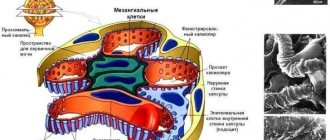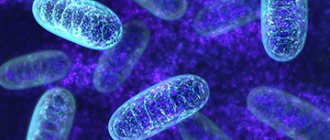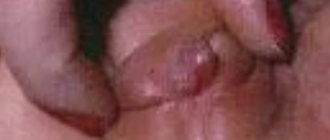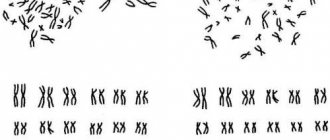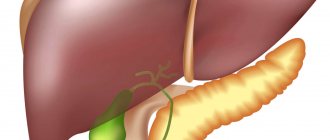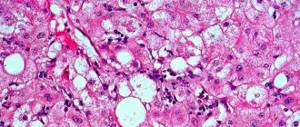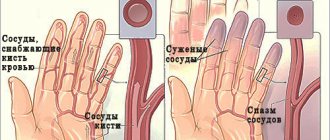It is generally accepted that all children are fidgety. Their lot is to run around all day, play and make noise. But sometimes it is a sign of attention deficit disorder. According to the WebMB website, about 3-5% of the US population suffers from this disease. In the world, it occurs in 5-20 cases out of 100. The disease first appears between the ages of 3 and 6 years, although many are diagnosed after 18. It has been established that 30% of children outgrow it, the rest adapt to their own behavioral characteristics as adults people.
Is ADD a problem?
Let's understand step by step what attention deficit disorder is and how to deal with it. Certain differences from the norm in a child’s behavior arise depending on age. Children attending kindergarten are characterized by a lack of self-control and perseverance, schoolchildren are characterized by absent-mindedness, and teenagers are characterized by phobias and anxiety.
However, for all groups the main sign of deviation was difficulty concentrating. It is difficult for a child to stay in one place for a long time, perform the same task, or perceive new information and instructions. He may have difficulties with self-control. Excessive activity, agitation, or, conversely, detachment (daydreaming) are monitored. The child tries to behave well, but to no avail, because the disorder is not the result of a lack of upbringing, but of special processes in the brain.
Parents must remember that the appearance of attention deficit disorder is no one's fault. You definitely need to help your child, because ADD can cause low self-esteem and poor performance at school. The most common problems that accompany the disorder are:
- depression (the child withdraws from the world, sleeps more or less than usual, is often sad, loses interest in any activities);
- manifestation of fears (anxious thoughts, timidity, anxiety appear);
- educational problems (children with ADD cannot process all the information; failure often occurs in several subjects; information simply is not registered in the brain).
The manifestation of attention deficit disorder is a problem that needs to be dealt with. Carrying the disorder into adulthood can result in more serious consequences - difficulties finding a job, etc.
[edit] ADD and doping
Despite the above, diagnosed by the World Anti-Doping Agency, ADD is considered a disease that allows athletes to legally take prohibited drugs. The number of Olympic champions affected by this plague of the 21st century is being clarified.
[edit] Ritalin and others like it
Ritalin (trade names: Ritalin, Meridil, Centedrin) is a drug from the group of psychostimulants. Removed from drug circulation in many countries (spoiler:
Oman, Yemen, Thailand, Togo, Nigeria
)
including in Russia. Causes addiction and dependence.
According to the medical description, Ritalin is a stimulant of the central nervous system. However, even the manufacturer admits in the package insert that no one really knows how Ritalin affects the body: “The mechanism of action in humans has not been fully studied...”
“Vitamin R” or “R-boll” as Americans call it, is used by students to increase intellectual abilities and concentration. In US colleges and universities, Ritalin is used illegally, without a doctor's prescription, and for slightly other purposes: for the effectiveness of overnight preparation before the exam, as well as on the day of the exam itself, in order to maintain alertness and mental acuity (if you have one, of course).
[edit] Ritalin for adults
Creativity generated by Ritalin
ADD also occurs in adults; it is diagnosed through an interview between a psychologist and a patient, which can be unrestrictedly used to knock out Ritalin in countries where it can be prescribed. Ritalin may be of interest to adults to increase mental productivity or simply increase their tone at the right time (from a hangover to a meeting, after a sleepless night at work, etc.), to obese people to ease recovery from illegal AIDS or replacement therapy.
Sometimes scientific papers note an interesting correlation between pee consumption and excessive use of Ritalin, but this fact has been repeatedly refuted with obscene language.
[edit] Side effects
The most common side effects from taking methylphenidate are nervousness and insomnia. Others include:
- abdominal pain;
- the occurrence of acne;
- addiction;
- angina pectoris;
- lack of appetite;
- changes in blood pressure and pulse (lower and higher);
- cardiac arrhythmia;
- diaphoresis (intense sweating);
- dizziness;
- drowsiness;
- dyskinesia;
- slow growth;
- headache;
- hypersensitivity (including skin rash, urticaria, fever, arthralgia (joint pain), scaly dermatitis, erythema multiforme with histopathological manifestations of necrotizing vasculitis, and thrombocytopenic purpura);
- nausea;
- dilated pupils;
- tachycardia;
- Boner for hours.
Also, during long-term therapy, patients may experience suicidal ideation, personality changes, and weight loss. Very rare effects include reports of Tourette's syndrome, seizures, toxic psychosis, and neuroleptic malignant syndrome. When you take Ritalin, you may start to see a little pink Christina Aguilera, but that hasn't been proven yet.
[edit] However
ADD is extremely beneficial to the pharmaceutical companies that we all love for the swine (and any other) flu that produce Ritalin, which generously sponsor all sorts of studies designed to confirm the growth of the “epidemic,” as well as to the Pindos schools, which get hit in the neck for ordinary poor students, but for caring A cash benefit is awarded for the health of children.
By the way, not a single independent scientific study of ADHD has been conducted in the United States over the past quarter century. Therefore, ADD lived, ADD is alive, ADD will live - ZOG will see to it.
Causes of the disease
There is no scientific evidence yet of the influence of social factors on the occurrence of the disorder. Improper upbringing is also not its source. The most likely causes lie in family genetics and neurobiology. Social factors can only aggravate the consequences of deviation, but do not cause them. At different times, scientists named all sorts of factors that could affect mental health:
- Environmental conditions. Doctors have established a certain relationship between the appearance of attention deficit disorder, smoking and drinking alcohol by the mother during pregnancy. The influence of lead on the body of a preschool child has also been confirmed. Once the element's use in paints was banned, the risk of developing the disorder was reduced. However, it is preserved in the decoration of old buildings. Children living in such buildings at a young age are at risk.
- Head injury. The opinion that it leads to impaired attention is to some extent erroneous. It has been established that only a small percentage of cases of damage to the front of the head lead to disorder.
- Sugar and other food additives. There is no single conclusion regarding the effect of sugar-containing foods on a child’s activity. Studies at different times have shown conflicting results, so it is impossible to say unequivocally that the substance is unsafe. However, some doctors claim that the diet has a positive effect on children's behavior.
- Heredity. It has been proven that 25% of children with ADD have relatives with the same disorder. If both parents suffer from the disorder, their child is considered at risk, however, the disease is not always determined by genetics. Children with ADD also appear in completely healthy and prosperous families.
The conclusion suggests itself: scientists have not established the true and exact causes of attention deficit disorder. So far they are naming only indirect factors.
Causes of attention deficit hyperactivity disorder
Official medicine has not yet found a clear answer to the question of the reasons for the development of pathology. It is believed that the disease may be caused by a negative effect on the nervous system of one or more factors.
Genetics
The disease may result from:
- oxygen starvation during intrauterine development, difficult childbirth;
- disruption of the natural formation of organs in the fetus due to the woman taking certain medications during pregnancy, alcohol abuse, drug abuse, and smoking;
- rapid or premature birth, causing damage to the spine or head;
- conflict between the Rh factor of the expectant mother and child.
The disease is hereditary in nature, in 80% of cases it is transmitted to the child from the parents. The risk of developing hyperactivity with lack of attention in a child also exists if distant relatives of one of the parents were diagnosed with this pathology.
Environment
The disease can be a consequence of previous illnesses up to 2 years. This group includes pathologies that provoke an increase in temperature to 40⁰C or require the administration of neurotoxic medications.
In the future, the risk of developing pathology exists when diagnosing a severe form of kidney disease, pneumonia, or bronchial asthma.
Society
ADHD in adolescents or adults is caused by the production of excess stress hormones. Situations that force a person to regularly experience his own failures, endure, put up with, contribute to the accumulation of cortisol in quantities that interfere with concentration.
How does a child with ADD behave?
Children with ADD are not all the same. They feel differently depending on the subtype of behavior:
- Inconsiderate guy. Previously it was called attention deficit disorder.
- Impulsive type. Inherent in hyperactive children.
- Combined type. Has signs of all subtypes.
The inattentive subtype of ADD is the most common. Such children keep themselves in line at school, but become almost uncontrollable at home, and also have problems communicating with peers. They don't necessarily blow their parents' minds. The child can remain calm, dream, but completely distance himself from what is happening around him. Often parents and teachers do not notice signs of attention deficit disorder until the student begins to seriously fall behind in his studies.
Children of the inattentive type have no difficulty concentrating on what they like, but they have difficulty concentrating on accepting new information. They often mix up lessons, forget to do homework, bring textbooks, etc.
Hyperactive children destroy everything in their path. They find it difficult to cope with their emotions. They talk incessantly, run around, try to find a new activity. The reaction in the brain happens too quickly. The child does not have time to think before doing something. He shows restlessness, cannot wait his turn in games, shouts out answers without waiting for the end of the question.
How to behave correctly with a baby who has been diagnosed
Such patients are in dire need of support; when communicating with them, it is necessary to avoid language that indicates what they should not do. Low self-esteem often forces the patient to switch to another action when unsuccessful. In this case, it is recommended to remind that everyone has troubles, so you should not give up on achieving your goal (you can glue a broken toy, cross out a mistake, or draw a new one instead of a damaged picture).
ADHD in children requires assistance in gaining control over excessive motor activity; pleasant memories of listening to music and playing together can help him learn to restrain himself.
The patient needs a simple, implementable plan for each day, week and month. The ability to stick to it helps you react less sharply in unexpected situations. Such a child needs communication in order to learn to express his thoughts and see a positive example of behavior.
Read more here
Processes in the brain. How to diagnose them?
There are special chemicals in our body called neurotransmitters. With their help, the brain controls our body, thoughts and emotions. They are contained in the body of a healthy child in a certain amount. In ADD, the levels of these substances are different and often change. This explains the fact that the symptoms of the syndrome appear and then disappear.
In the absence of neurotransmitters in one of the parts of the brain, the impulse is simply not transmitted. Signals that are responsible for “braking” do not pass through. This process manifests itself externally, in the behavioral deviations described above.
Parts of the brain are responsible for corresponding mental and behavioral manifestations. It is believed that the effects of attention deficit disorder can affect different areas. Depending on this, the child shows more signs of inattention or hyperactivity.
To establish a diagnosis, you first need to make sure the following accompanying signs are present:
- deviations from behavioral norms appear longer than 6 months;
- symptoms occur regularly;
- non-standard behavior began to influence all areas of the child’s life;
- there were problems with studying and establishing interpersonal contacts;
- other reasons that could cause the violation were not identified (for example, stress, relocation, new team, etc.).
A variety of methods are used to diagnose attention deficit disorder. The most common of them are: external observation and filling out a questionnaire by parents, caregivers and teachers, as well as consultation with a specialist who makes a final diagnosis. Psychiatrists, psychologists, pediatricians and neurologists search for the disorder.
All examination methods can be included in the following list:
- tests to identify the neuralgic and psychological state of the child;
- studying his medical history and social situation in the family;
- testing of vision, speech skills, motor activity;
- assessment of compliance with age development, abilities, personal qualities, ability to perceive information.
What is ADHD
Pathology is a disruption of the nervous system caused by functional malfunctions of the brain due to a deficiency of necessary biologically active substances. The disease can have 3 forms:
- Attention deficit. Only this disorder is registered in the patient. The development of hyperactivity even in the absence of quality treatment for the pathology is excluded.
- Hyperactivity syndrome, aggravated by temper and nervousness. Patients cannot control their emotional state, are irritable, unbalanced, but they do not have absent-mindedness syndrome.
- Mixed form. This type of disease is more common than others. Signs of ADHD in this case include emotional disturbances, poor concentration, and uncontrolled performance of aimless physical activities.
How to help children with attention problems? We are looking for a specialist
Treatment for ADD is multifaceted. It implies, first of all, psychiatric therapy to correct the behavior of the ward. If parents notice signs of attention deficit disorder, they should contact their pediatrician. He will recommend the right specialist with experience in this field.
A child psychiatrist is a specialist who diagnoses and treats psycho-behavioral disorders. Unlike a psychologist, he has the right to prescribe medication for a patient. The latter work on the general situation in the child’s family. With the help of trainings, they develop methods for parents to work on weak points in their children’s behavior and teach them how to use them. Neurologists are also able to diagnose the disease and prescribe appropriate medications.
Ideally, you need to find a specialist who has the most extensive tools for working with a child. IQ Club offers its assistance in raising “difficult” children. Our specialists have successful experience working with families with a child with attention problems. We conduct trainings to introduce him into society and teach parents the correct tactics of behavior at home.
Drug treatment
If the manifestations of attention deficit disorder are a disease of the nervous system, then persuasion alone will not help. In some cases, a specialist prescribes medications. Benefits of drug therapy for a child:
- self-control increases;
- school performance improves;
- relationships between children are improved on the playground;
- the risk of developing depression decreases.
Attention! The drug and dosage for the treatment of attention deficit disorder are selected exclusively by the attending physician. The effectiveness of the drug is observed over a week. If there is no improvement, the doctor adjusts the treatment tactics. Psychostimulants have side effects, so self-medication is strictly prohibited.
Taking medications under medical supervision is considered safe. They do not cause a feeling of “high” in the child, so we are not talking about addiction. However, some patients noted that they felt differently. There is currently no evidence that stimulants can cause addiction in children.
Experiments at Massachusetts General Hospital and Harvard Medical School found that teenagers with ADD and taking special medications were less likely to use drugs than their peers with a similar disease but not taking medications.
[edit] Correct™ treatment
Instead of Ritalin
| Gillian was only seven years old, but her future was already in jeopardy. Her performance at school was simply disgusting. Gillian was late in completing assignments, her handwriting was terrible, and her test scores were dismal. In addition, the girl distracted the whole class from their studies: she either fidgeted noisily in place, or looked out the window, forcing the teacher to interrupt the lesson in order to attract her attention again, or disturbed the children sitting around her with her antics. Gillian wasn't particularly concerned about any of this—she was used to adults reprimanding her and really didn't consider herself a problem child—but the teachers were concerned. The situation came to a head when the school authorities wrote a letter to her parents. Teachers believed that Gillian had a learning disability and that it might be better for her to go to a school for children with disabilities. All this happened in the early 1930s. I think today they would consider her to have attention deficit hyperactivity disorder (ADHD) and put her on psychotropic drugs. However, at that time this term had not yet been invented. ADHD could not be cited at any opportunity. Gillian's parents were very concerned when they received the letter from the school and immediately took action. Gillian's mother dressed her daughter in her best dress and shoes, pulled her hair into neat ponytails and took her to a psychologist, fearing the worst. Gillian told me that she remembers being invited into a large oak-paneled room with leather-bound books on the shelves. In the room, near a large desk, stood a distinguished man in a tweed jacket. He led Gillian to the far end of the room and sat her down on a huge leather sofa. Gillian's feet did not reach the floor, the surrounding situation was alarming. She was nervous about the impression she would make, so she sat on her hands to avoid fidgeting. The psychologist returned to his desk and spent the next twenty minutes questioning Jillian's mother about her daughter's difficulties in school and about the problems that the teachers said were caused by the girl. Without asking a single question to Gillian herself, he watched her carefully all the time. Because of this, Gillian felt extremely awkward and embarrassed. Even at such a tender age, she understood that this man would play a significant role in her life. She knew what it was like to attend a special school, and she wanted nothing to do with that school. She didn't really think she had any real problems, but everyone around her seemed to think the opposite. Judging by the way her mother answered the questions, it was possible that even she thought so. “Who knows, maybe they’re right,” Gillian thought, sitting on the sofa. Finally, Gillian's mother and the psychologist finished talking. The man got up from the table, walked over to the sofa and sat down next to the girl. “Gillian, you were very patient, thank you for that,” he said. - But be patient a little longer. Now I need to talk to your mom alone. We'll go out for a few minutes. Don't worry, it won't last long. Gillian nodded cautiously, and the two adults left her alone in the room. However, on his way out, the psychologist, leaning over the table, suddenly turned on the radio. As soon as they left the room into the corridor, the doctor said to Gillian's mother: “Stay here a minute and see what she's doing.” There was a window in the wall through which one could see what was happening in the room. The adults stood so that Gillian could not see them. Almost immediately the girl jumped to her feet and began moving around the room to the beat of the music. The two adults watched the girl in silence for several minutes, amazed by her natural, almost primitive grace. Finally, the psychologist turned to Gillian's mother and said: “You know, Mrs. Lynn, Gillian is not sick.” She is a dancer. Take her to a dance school. |
| Ken Robinson |
[edit] A schizoteric version of the correct treatment from a Toltec Indian warrior (an improved version of Russian pussies)
Clip from Thomas Dolby
| Don Juan and I talked about various things in a free and relaxed manner. I told him about my friend and his problem with his nine year old son. The child who had been living with his mother for the past four years was now living with my friend and the problem was what to do with him. According to my friend, the child was unfit for school. He lacked concentration and was not interested in anything. He resisted everything, rebelled against any contact and ran away from home. Your friend really has a problem,” don Juan said, laughing. I wanted to keep telling him about all the “horrible” things the child had done, but he interrupted me. “There is no need to say any more about this poor boy,” he said. “There is no need for you or me to consider his actions one way or the other in our thoughts.” His manner was direct and his voice was firm, but then he smiled. -What can my friend do? - I asked. “The worst thing he can do is force a child to agree with him,” don Juan said. - What do you mean? “What I mean is that the child’s father should not spank or frighten him in cases where he does not behave as the father would like. “But how can he teach him anything if he is not firm with him?” “Your friend should find someone else to spank the child.” “But he can’t let anyone touch his boy!” - I said, surprised by his proposal. Don Juan seemed to like my reaction and laughed. “Your friend is not a warrior,” he said. - if he were a warrior, he would know that the worst thing one could do would be to confront a person directly. “What does a warrior do, don Juan?” — A warrior acts strategically. “I still don’t understand what you mean.” “I mean, if your friend was a warrior, he would help his child stop the world.” - But how can my friend do this? “He would need personal strength.” He would have to be a magician. - But he is not a magician. “Then he must use ordinary means to help his son change the idea of the world.” It's not stopping the world, but it will have the same effect. I asked him to explain his words. “If I were your friend,” don Juan said, “I would start by hiring someone to spank the little boy.” I would go into the city slums and hire the scariest looking person I could find. - To scare a little boy? “Not just to scare the boy, you fool, this kid needs to be stopped.” But this will not happen if his own father beats him. - If anyone wants to stop other people, then he should always stay away from the circle that presses on them. This way he will always be able to control the pressure. The idea was unusual, but somehow it resonated with me. Don Juan rested his chin on his left palm. His left arm was pressed to his chest, resting on a wooden box that served as a low table. His eyes were closed, his eyeballs were moving. I felt that he was looking at me through closed eyelids. This thought scared me. “Tell me more about what my friend should do with his boy.” “Tell him to go into the city slums and pick out a nasty looking bastard very carefully,” he continued. “Tell him to take a young one, one who still has some strength left.” Don Juan then outlined a strange strategy. I had to instruct my friend that the hired man should follow him or wait for him at the place where he would come with his son. This person, in response to a conditioned signal that would be given after any misbehavior on the part of the child, was supposed to jump out of a secluded place, grab the child and spank him so that he would not see the light. —After the man scares him, your friend must help the boy regain his confidence in any way he can. If he does this procedure three or four times, then I assure you that the child will have different feelings towards everything. He will change his idea of the world. “But what if fright cripples him?” - Fear never cripples anyone. What cripples the spirit is to always have someone on your back, pounding on you and telling you what to do and what not to do. “When this boy becomes more reserved, you must tell your friend to do one last thing for him.” He must find some way to gain access to the dead child, maybe in a hospital or a doctor's office. He must bring his son there and show him the dead child. He must allow him to touch the corpse once with his left hand in any place except the stomach of the corpse. After the boy does this, he will be updated. The world will never be the same for him. |
| Carlos Castaneda. Travel to Ixtlan |
Non-drug ways to help
Among the non-drug treatment methods for attention deficit disorder, the most effective are:
- Psychotherapy. She teaches the child to accept himself as he is. Her task is not to work with symptoms, but to find tools for managing emotions. By and large, the psychotherapist minimizes the patient’s concomitant disorders (oppression, depression, guilt, etc.).
- Behavioral therapy. It is aimed at helping the child change the way they think. It not only teaches you to understand yourself, like psychotherapy, but gradually change from the inside. Therapy can help you cope with tasks as simple as preparing homework and as complex as managing your anger in a critical situation.
- Development of interaction skills in society. In this case, the doctor tries to model the behavior of a child with the syndrome in different life circumstances, for example, calmly wait his turn, share toys, and steadfastly respond to children’s teasing (teasing). These practices are very important for building interpersonal relationships in childhood.
- Support groups. Unfortunately, this is not very developed in our country, but even now parents whose children suffer from the disease are trying to unite in groups to jointly listen to educational lectures on ADD, share successes and failures, and find out how others cope with the problem.
- Training parents in additional skills. There are different systems for correcting child behavior that are offered to parents. Among them, a system for evaluating actions and “time out” (isolating a child in a quiet place if he gets out of control). The latter method is used not for punishment, but for removal from stimulating factors.
Parents must learn to create situations in which it is easier for their child to succeed. For example, games that involve only 2-3 people are good. This will prevent the child from becoming overexcited. Not least important are stress management techniques (meditation, relaxation).
Memo for parents
The family of a special child knows better than anyone what attention deficit disorder is. Such a child requires much more love and attention. There are certain rules for mom and dad, following which will help minimize the burden on the mental state of their child:
- Build a positive attitude. Children suffering from the disorder react very sensitively to criticism. You should not use the word “no” when talking to them. Instead of saying “don’t do it that way,” it’s worth saying how it “should be done correctly.” It is necessary to set your own positive example: “Let me help you put things away” and develop positive thinking in the child. He needs to instill the belief that he can do anything.
- Praise the child! All people make mistakes, but children especially. Don't focus on failures, rather praise them for their achievements. Tell us how proud you are of good deeds. If your child breaks something, encourage him.
- Protect your child from worry. If he is irritated or overexcited, you need to try to calm him down: for example, give him a bath, turn on pleasant music, sit him down for quiet games.
- Organize your daily routine. Knowing the routine will make it easier for your child to complete tasks and he will feel calmer. Basic activities should be repeated at the same time: eating, doing homework, sleeping, etc. Help him solve important matters here and now, without putting it off until later.
- Talk to your child. Topics for discussion can be very different. Ask what he feels and thinks. Listen to his answers to the questions posed and give positive comments. You cannot be responsible for a child. If he needs time to think, it doesn't matter. He needs to know that you are really interested in him and that his life is important to you.
- Minimize distractions. Remember that your child needs special conditions for development. To make it easier for him to concentrate, let him “let off steam.” If the task is too large, you can divide it into parts and complete it step by step. Take breaks between stages, monitor the quality of the work done and move on to the next task. This will make it easier for the child to concentrate.
- Bad behavior is not a death sentence. You should never yell at children with ADD. It is more correct to explain what exactly made you angry as a parent. You can’t generalize, speak out about a specific situation. If you decide to resort to punishment, it must be fair.
- Take time for yourself. Raising a child suffering from attention deficit disorder is hard work. You need rest too. To find at least a little free time for yourself, come up with useful leisure activities for your child. For example, IQ Club conducts trainings and interesting activities for children. Their proper organization allows you to captivate any child, even the hyperactive and inattentive!
Syndrome in teenagers
As was said at the beginning of the article, not all children outgrow the disease in preschool and early school age. Violations are also common during adolescence. It requires even more participation from parents. Youth problems, such as fear of failure in school and personal life, pressure from classmates, are more difficult for children with ADD. The desire to be independent and the craving for forbidden fruit - alcohol, smoking - can greatly affect the mental health of a growing person.
As before, it is recommended to set certain rules for the child. They should be specific and easy to understand. Parents are required to explain “why” the rule was established. You can even make a printed table and hang it in a visible place.
If a rule is broken (and this is inevitable), you need to react to it as calmly as possible. Punishments must be fair and clear. It is possible to use the “time-out” technique. She also works with teenagers. Try to find a compromise with them. Talking through the situation is the best way to resolve it.


